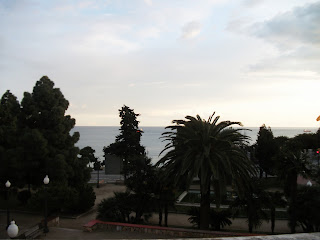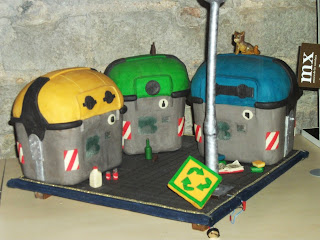One of the best universities in Spain, considered posh in Barcelona, the breeding ground for the future Spanish elite… and us, Erasmus guys. You can easily spot us in the crowd. We wear t-shirts in November and have confused looks on our faces. We all had something stolen during our stay. We go out on weeknights and never speak out loud in the class because we are busy trying to look invisible in the back of classroom so that no one asks us anything.
My stay at UPF has been a series of ups, downs, surprised and faux-pas, some of them funny some of them not. I’ve survived the first term though and chances are I will go through the second one too!

First of all you need to know UPF is a very Catalan place. I am lucky to be a languages student hence I attend Erasmus-oriented modules in Spanish, otherwise everything is in Catalan. Erasmus modules are a safe harbour; we are all on the same boat. If you are a bit masochistic like me and voluntarily choose to dive in and do a non-Erasmus module you have to keep in mind you’ll always feel like a spare prick at a wedding (especially when your German teacher changes the language in which he teaches just because you’re present in class. Which is absolutely lovely by the way!!). Also, it’s difficult to make Spanish friends and you might end up not practising much Spanish at all. And the ‘normal’ classes tend to be more difficult. Local students seem to study a lot (or at least they spend plenty of time in the library), they party (usually) only on weekends and only every third student in the library has their Facebook open. Impressive.
So once you got over the fact you did not come to Spain but Catalonia, you have to face other obstacles. Like Spanish ways. Let’s take printing. I might not be an IT specialist but even I am able to print stuff out. At UPF, however, it took me over an hour and help of varied people to sort it out. You need a special card, you need to remember to send your file to a ‘factoria’, and then (when you manage to find a printing machine corresponding to the factoria you have chosen) don’t helplessly push all the buttons at once… Better ask some local to help you out, saves time and nerves.
And then… Paperwork. Be ready to run between buildings, come back a couple of times per week (manana o’clock) and take three deep breaths first. Remember: no one replies to e-mails (not as soon as you’d wish) and the ‘big-blue-eyes-I’m-a-lost-silly-foreigner’ strategy does NOT always work.
It might sounds a tiny little bit discouraging (not? intended) but in reality there are quite a few cool things about UPF too. Like… sitting in the sun between classes sipping beer. Cheap coffee. Free newspapers (always take one because you will definitely read it, umm - later!). People treat you a bit like a retard and tolerate your strange excesses like drinking tea with milk or using the staff’s elevator…
To conclude… However stressful and overwhelming at first, you get used to everything. Erasmus in Barcelona is definitely one of a kind experience.

















































